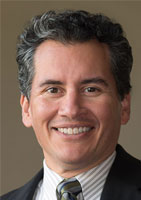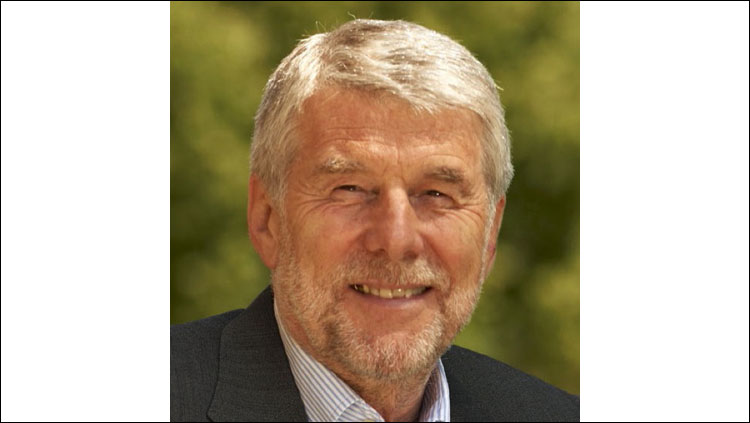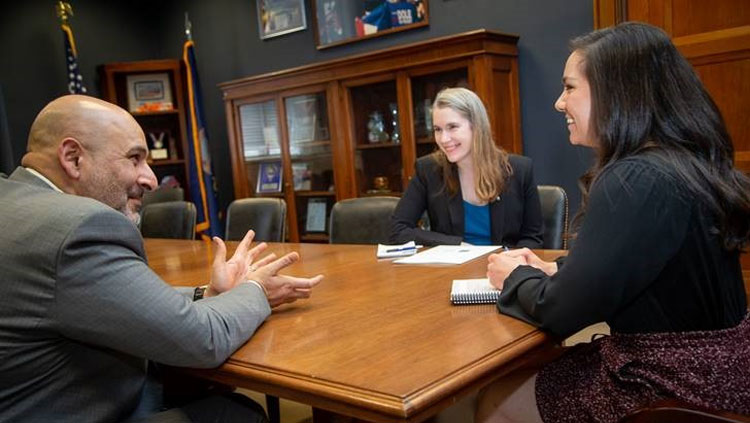Q&A: International Brain Bee Board Chair on its New Structure and Priorities
The International Brain Bee (IBB) is an organization that encourages high school students to learn about the brain and pursue careers in neuroscience or medicine by hosting an annual neuroscience competition. Students around the world compete in local and national Brain Bees and advance to the IBB World Championship, always held in conjunction with a major neuroscience conference. Founded in 1998 at the University of Maryland, the IBB has evolved from a volunteer-led, grassroots organization to an international non-profit supported and governed by five prominent neuroscience organizations: the American Psychological Association, the Dana Foundation, the Federation of European Neuroscience Societies (FENS), the International Brain Research Organization (IBRO), and SfN.
The new chair of the IBB Board of Directors is Jaime L. Diaz-Granados. Diaz-Granados currently serves as the deputy chief executive officer of the American Psychological Association (APA) and is the author of nearly 60 research papers. Previously, he has served as department chair for the Department of Psychology and Neuroscience at Baylor University, led an NIH-funded Alcohol Research Center on the neurodevelopmental and behavioral effects of alcohol abuse, and was a member of review panels and committees with the National Institute on Alcohol Abuse and Alcoholism.
Diaz-Granados took time with SfN to discuss the IBB's new structure and priorities.
Neuroscience Quarterly: What was your first interaction with the IBB?

Jaime Diaz-Granados
Jaime Diaz-Granados: My first interaction with the IBB was during my first year at the APA when I was serving as the Chief Education Officer. A colleague told me that we hosted the IBB World Championships every third year in D.C. and asked, given my neuroscience background, if I would be interested in taking over that responsibility. I immediately jumped at the chance! I suspected this was a worthwhile initiative and my suspicion was confirmed when I witnessed my first awards ceremony. The enthusiasm of the competitors and their families from all over the world for brain science was palpable and hooked me from that very start.
NQ: In your opinion, what has been the driving force/s for the IBB’s phenomenal growth?
JDG: I think the IBB is the fruit of a lot of passion. First, the founder, Norbert Myslinski, had a vision fueled by a passion for teaching and bettering the world through neuroscience education. His many years of solitary work to stand the competition up then led to the opportunity for the five governing partner organizations to join forces and create a formal organization to ensure the success and growth of the IBB for years to come. Everyone involved with the IBB — from the board members to our executive director, competition sponsors and judges, and all the volunteer organizers around the globe — are committed to and passionate about inspiring students to study and pursue careers in neuroscience as a way of treating and finding cures for brain disorders.
NQ: Can you talk about IBB’s new structure as a non-profit?
JDG: The day-to-day operations of the IBB are aptly led by our Executive Director Astrid Eberhart. She has been involved with the IBB for many years, professionally and as a volunteer and we are fortunate to have her in this role. The board of directors is responsible for setting the strategy, direction, and policies of the organization and is comprised of two representatives from each of the five governing partners.
NQ: How will becoming a non-profit enable IBB to better pursue its mission to motivate students to learn about the brain?
JDG: As a non-profit educational organization, the IBB is dedicated to the advancement of education and science for the betterment of students and society. This new status and the involvement of the governing partners affords us a strong platform by which to identify and invite other individuals and organizations who are passionate about and see the value of neuroscience education to join us in supporting and sustaining the IBB and its mission.
NQ: What are IBB’s priorities in the coming year/s?
JDG: The current priorities of the IBB are to continue the implementation of the new organizational structure, provide guidance and support to local and national competition and the IBB World Championship, invite new collaborators and partners to participate and contribute to our mission and, of course, to work closely with our global network of incredible volunteer coordinators to deliver the best neuroscience education experience to the thousands of students who participate in the Brain Bee.



















